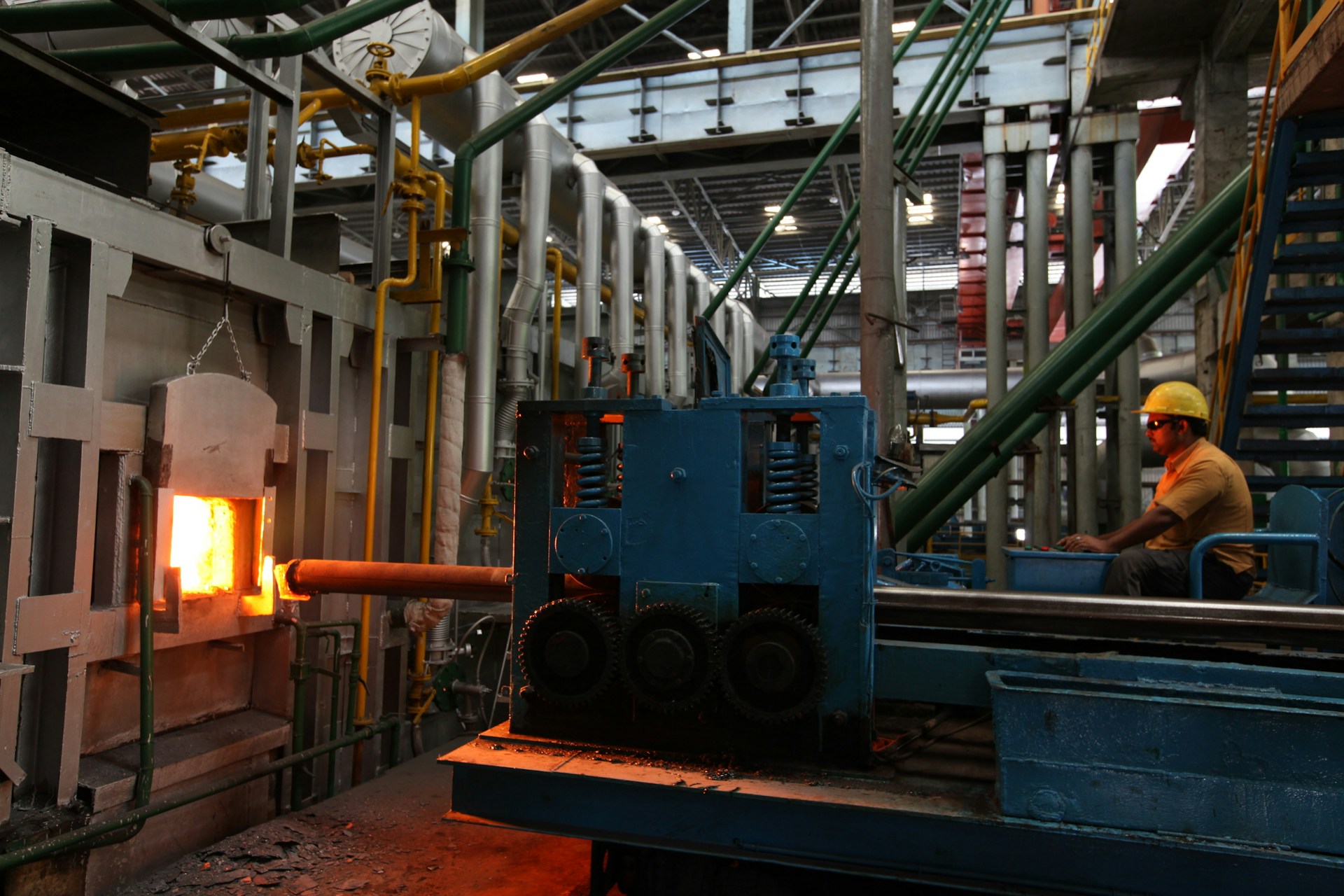Looking to land a machinist role fast without guesswork? Machinist staffing helps you target real openings, cut noise, and match your skills to shops that need them now. Instead of endless scrolling, you’ll get clear steps so that you can apply with confidence.
With Integrity Jobs, you get a friendly guide to direct hire, temp-to-hire, and temporary paths—plus resume tuning and interview prep. We translate your shop-floor experience into results, then connect you to roles that fit your goals and schedule.
Inside, you’ll find practical steps, quick checklists, examples, and FAQs to reduce stress and speed decisions. Learn how shops hire, what skills matter, and how to stand out fast. Keep reading to turn interest into offers with actions you can use today.
What Is Machinist Staffing?
Machinist staffing finds the right people to fill machinist jobs in manufacturing and related industries. Staffing firms match you with employers who need workers skilled in operating machines that create or shape metal parts.
You need specific skills and knowledge to succeed as a machinist. These skills make you valuable on the job.
Definition and Overview
Machinist staffing connects qualified machinists with companies that need their skills. Machinists work with tools like lathes, mills, and grinders to cut, shape, and finish metal parts.
Staffing companies help you find temporary, temp-to-hire, or permanent jobs to match your experience and goals. These services support local industries by filling open positions quickly and fairly.
For you, machinist staffing offers a way to get steady work and build your career in manufacturing.
Importance in Manufacturing
Machinists are essential for making parts that build everything from cars to farming equipment. Without skilled machinists, factories can’t operate smoothly or meet production goals.
Staffing services keep people like you working by filling these critical roles when companies are short-staffed. Your work directly impacts how efficiently products get made and how well machines run.
Companies rely on machinists to keep production lines moving and maintain quality.
Key Skills Required
To get hired as a machinist, you need technical skills and attention to detail. You should know how to read blueprints, measure parts precisely, and operate machines safely.
Experience with CNC (computer-controlled) machines is especially valuable. Other important skills include problem-solving, basic math, and teamwork.
Being reliable and following safety rules also helps you fit into any manufacturing job. Staffing firms look for these skills to match you with the best role for your talents.
Types of Machinist Positions
Machinist jobs vary based on the tools and methods used to make parts. Some roles focus on computer-controlled machines, while others rely more on manual skills.
There are also specialized jobs that involve creating the tools other machinists use.
CNC Machinists
As a CNC machinist, you’ll work with computer-controlled machines that cut, shape, or drill metal and other materials. You program and run these machines to create precise parts.
Your job includes reading technical drawings and setting up machines correctly. CNC machinists often use software to control every step of production.
This job demands attention to detail and the ability to troubleshoot machine issues. It’s well-suited for those who like combining technology and hands-on work. This role typically offers steady hours. You can advance to higher positions in manufacturing.
Manual Machinists
Manual machinists work with hand-operated or mechanical machines like lathes or mills. You adjust controls and guide tools to shape parts by hand, relying on skill and experience to meet specs.
This job requires good hand-eye coordination and a solid understanding of machine mechanics. You may need to measure parts carefully to ensure high quality.
Manual machining can involve more physical effort compared to CNC work. If you enjoy working closely with machines and taking pride in detailed craftsmanship, this role fits well.
Tool and Die Makers
Tool and die makers design and build specialized tools, molds, and dies used in manufacturing. Your work impacts how efficiently and accurately parts are made.
In this role, you interpret blueprints and machine tools with precision. It requires problem-solving skills and patience since these tools must fit perfectly.
Tool and die makers often work on one-of-a-kind projects. This job is ideal if you like variety and challenge. You play a key role in supporting production by maintaining the quality and readiness of essential tools.
Recruitment Strategies for Machinist Staffing
Finding the right machinist means focusing on where to look, what to ask, and how to guide new hires smoothly into the job. You’ll want clear steps to connect with skilled candidates, check their abilities, and help them settle into their roles.
Sourcing Qualified Candidates
Target places where machinists spend their time, such as trade schools, local job fairs, and online job boards focused on skilled labor. Use clear job descriptions that list necessary skills like CNC programming or manual machining, plus any required certifications.
Networking is key. Encourage referrals from current employees or industry contacts.
You can also reach out to veterans or recent graduates, since many have solid machinist training. Keep your outreach honest and friendly so candidates feel welcomed and valued from the start.
Screening and Interviewing
Focus your screening on verifying skills and fit. Look for experience in machine operation, blueprint reading, and safety protocols.
Ask about tools they’ve used and projects they’ve completed. During interviews, start with simple questions about their past jobs, then get more specific.
For example, ask how they handle machine malfunctions or tight deadlines. Pay attention to attitudes toward teamwork and safety. Attitude can be just as important as skill for long-term success.
Technical Skill Assessments
Test skills before hiring to save time and trouble. Use hands-on tasks like setting up a CNC machine or measuring parts with calipers.
You may also test reading and interpreting blueprints or following specific machining instructions. If an on-site test isn’t possible, consider video submissions or detailed work histories.
Keep assessments practical and relevant to the job duties. This shows not just what candidates know, but how they solve real problems on the job.
Onboarding Processes
A smooth start helps new machinists feel confident and ready. Begin with an orientation that covers safety rules, company policies, and the tools they’ll use daily.
Pair new hires with experienced mentors to guide them through early tasks. Provide clear manuals or quick reference guides for machines and software.
Frequent check-ins during the first weeks allow you to answer questions and adjust training as needed. This support helps machinists settle in faster and perform better on the job.
Challenges in Machinist Staffing
Finding the right machinists isn’t always simple. Employers and staffing agencies face hurdles like matching skills to job needs, keeping workers long-term, and filling open roles quickly.
These challenges affect your chance to land or keep a good machining job.
Skills Gap
Many companies need machinists who can handle both manual and CNC machines well. There aren’t enough workers with the right mix of hands-on experience and technical know-how.
You might notice job listings asking for two years or more of practical machining skills plus some education in engineering or vocational training.
Employers sometimes hire less-experienced workers and invest time teaching them on the job. You can build solid basic skills and keep learning computer-controlled machining and blueprint reading to stay competitive.
Retention Issues
Keeping machinists long-term is tough because the work can be physically demanding, and shift schedules may vary, like night shifts. Pay and benefits also play a big role.
If you don’t feel valued or supported, you might look elsewhere for better opportunities. Employers aim to offer benefits and fair wages to keep workers like you from leaving.
You can boost your job security by improving your skills and showing reliability.
Ask about company support programs that make your work life easier.
Workforce Shortages
Machining jobs are growing in Ohio and across the U.S., but the labor pool isn’t large enough to fill all open positions. Older workers are retiring, and fewer young people choose machining careers, leading to a shortage of skilled labor.
Consider flexible job options like temp-to-hire or contract roles to stand out. These can help you get your foot in the door while employers see you as a good fit for permanent positions.
Staffing services can connect you with local jobs that match your skills and goals.
Benefits of Specialized Machinist Staffing Agencies
Working with a specialized machinist staffing agency can save you time and connect you with the right work fast. These agencies know what local companies need and focus on matching skilled machinists with jobs that fit their skills and goals.
Access to Skilled Talent
When you use a staffing agency focused on machinists, you get access to workers who already have the hands-on experience you need. These agencies carefully screen candidates for skills in CNC machining, lathe operation, welding, and other key tasks.
You spend less time sorting through resumes and interviewing applicants who don’t meet your standards. The agency understands the industrial environment and knows which candidates are ready to step into your shop or plant.
Faster Hiring Processes
Staffing agencies speed up hiring by handling job postings, candidate screening, and initial interviews for you. This helps you fill open machinist roles much faster than going it alone.
You get a shortlist of qualified machinists who match your specific production needs and timeline. This quick turnaround keeps your operations running smoothly.
Reduced Turnover Rates
Specialized staffing agencies focus on finding workers who are a good fit, not just any candidate. They consider company culture, shift schedules, and the technical challenges machinists will face.
When the fit is right, machinists tend to stay longer at their jobs. This lowers turnover rates and reduces the cost and stress of constant rehiring and retraining. You get more stability and a dependable workforce that supports your long-term goals.
Trends Impacting Machinist Staffing
Machinist staffing is changing because of new machines and shifting worker backgrounds. Technology is reshaping job tasks, while the workforce is growing more diverse and experienced in different ways.
These shifts affect what skills you need and how companies hire.
Automation and Technology Impact
Automation, like CNC machines and robotics, is changing how machinists work. You’ll need to know how to run and program these machines instead of just using hand tools.
Skills in computer programs and machine setup are more important than before. Because machines do many repetitive tasks, machinists now focus on quality control and troubleshooting.
Employers look for people who combine hands-on skills with tech know-how. If you learn to work with newer equipment, you’ll be in demand. Tech also speeds up hiring by matching the right skills to jobs faster.
Changing Workforce Demographics
The machinist workforce is getting younger and more diverse. More entry-level workers are coming in, often with trade school or vocational training.
This opens new paths if you’re just starting. Many experienced machinists are retiring, creating gaps.
Companies want to fill those positions with both fresh talent and skilled veterans. Employers today value soft skills like teamwork and communication as much as technical skills.
Compliance and Safety Considerations
When you work as a machinist or in related roles, safety should always be your top priority. Understanding and following workplace safety rules helps protect you from accidents and injuries.
You need to be familiar with important safety gear like gloves, goggles, and ear protection. Using this equipment correctly can reduce the risk of harm when working with heavy machines or sharp tools.
Your employer expects you to follow all OSHA regulations and any company-specific safety procedures. Preventive maintenance is a key part of safety.
Here’s a quick checklist to keep in mind:
- Wear all required personal protective equipment (PPE)
- Follow lockout/tagout procedures during repairs
- Report any unsafe conditions right away
- Keep your work area clean and organized
Clear communication and proper training help keep you safe on the job. If you ever feel unsure about a task, ask for guidance. Safety is a shared responsibility, and your well-being matters.
How to Choose the Right Machinist Staffing Partner
Pick a staffing partner that knows machining work and takes time to understand what you need. You want a team that checks skill levels carefully and connects you with jobs or workers who truly fit.
Evaluating Agency Experience
Look for a staffing partner with solid experience in machinist jobs. Ask how long they’ve worked with machinists and what types of employers they serve.
Agencies with years in the field understand the specific skills needed for jobs like CNC machining, milling, or turning. Also, check if the agency offers different hire options like temporary, temp-to-hire, and permanent roles.
This flexibility helps you find work or staff that matches your goals. Agencies with practical, proven processes can often place you faster and with less hassle.
Verifying Candidate Credentials
A good machinist staffing partner checks credentials carefully. They confirm your skills, such as reading blueprints, using machine tools, and following safety rules.
Certifications like OSHA or specific machining training matter too. Ask if they test candidates or verify past work experience.
Agencies that do this make sure you’re matched with employers who value your real skills. This step helps avoid mismatches and builds trust for long-term success.
Future Outlook for Machinist Staffing
The demand for skilled machinists remains steady and continues to grow. As manufacturing technologies change, companies need machinists who can work with both traditional tools and computerized machines.
You may find more opportunities in places like Eaton and Mansfield, Ohio, where industries need qualified machinists, engineers, and technicians. These areas focus on metal fabrication, automotive parts, and steel production, keeping job openings consistent.
Key trends to watch:
- Growing use of CNC machines means learning new skills can boost your employability.
- Temporary or temp-to-hire roles offer flexible ways to gain experience and explore different workplaces.
- Employers often look for workers with strong technical skills and a good work ethic.
You can get help tailoring your resume and preparing for interviews through staffing services. They connect you to jobs that fit your skills and career goals, offering affordable and friendly support.
Taking small steps toward learning new tools or certifications can open more doors for you in this field.
Next Steps To Win In Machinist Staffing
You’ve seen how machinist staffing streamlines the search: target skills, choose the right path, and prove value fast. Focus your resume on CNC, blueprint reading, and safety results, then apply where your strengths matter.
With Integrity Jobs, you get one-on-one guidance, fast feedback, and options across direct hire, temp-to-hire, and temporary roles. We align your goals with your needs, reduce guesswork, and keep the process friendly and fair.
Ready to move? View open jobs to match with roles that fit your skills, schedule, and pay targets now.
Frequently Asked Questions
Finding and hiring the right machinist means knowing what skills and experience matter most. You’ll also want to understand how to check technical abilities, recruit effectively, and see if a candidate fits your team. Salary and safety certifications are important parts, too.
What qualifications are needed to hire a skilled machinist?
Look for at least 5 years of experience working with machine setups and operations, like Hydromat Transfer Machines. Technical training or certifications related to machining and manufacturing are a big plus. Hands-on skills and attention to detail are critical.
How do I assess the technical skills of a machinist during the hiring process?
Ask for examples of machines they’ve worked on and what kinds of parts they’ve produced. Consider a skills test or on-the-job trial to see how well they operate equipment.
Checking references from previous employers can also help confirm their abilities.
What are some effective strategies for recruiting experienced machinists?
Use local job boards and staffing firms that specialize in manufacturing roles. Offer flexible options so that temp-to-hire candidates can try the work before committing. Highlight benefits, competitive pay, and a positive work environment to attract qualified applicants.
Can you suggest ways to ensure a machinist fits well with our company culture?
Look for someone whose work style matches your team’s pace and values. During interviews, ask about how they handle challenges and teamwork. Consider a short trial period to see how well they communicate and adapt to your shop’s routines.
What is the typical salary range for a machinist position?
Machinists with strong skills often earn between $28.00 and $34.00 per hour. Pay can vary with experience, location, and complexity of the work involved.
What are the most important safety certifications for machinists?
OSHA safety certifications are essential for machinists. Training on machine-specific safety and proper tool handling helps prevent accidents. Some employers may also require first aid or forklift operation certificates.




